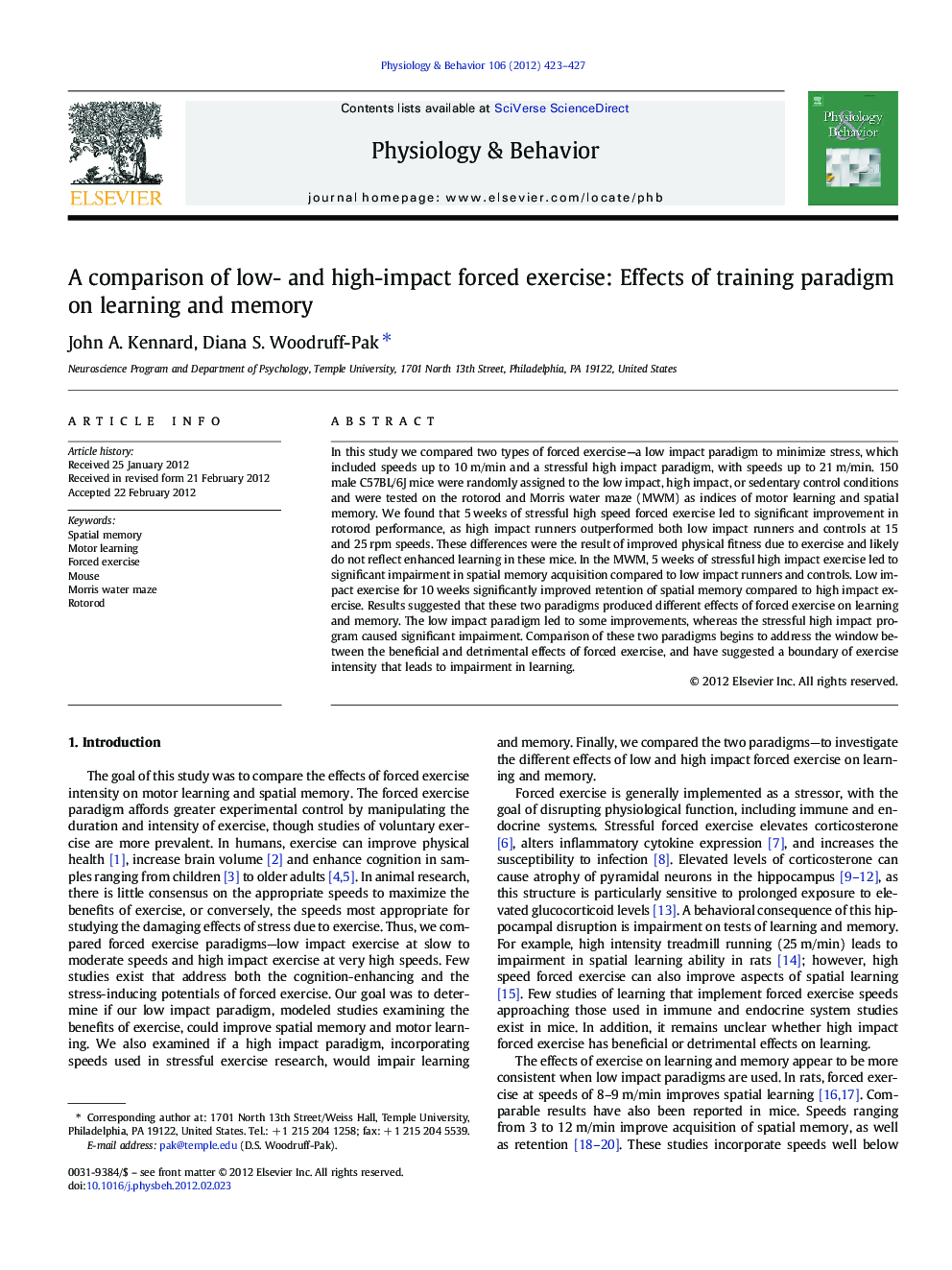| Article ID | Journal | Published Year | Pages | File Type |
|---|---|---|---|---|
| 5924959 | Physiology & Behavior | 2012 | 5 Pages |
In this study we compared two types of forced exercise-a low impact paradigm to minimize stress, which included speeds up to 10Â m/min and a stressful high impact paradigm, with speeds up to 21Â m/min. 150 male C57BL/6J mice were randomly assigned to the low impact, high impact, or sedentary control conditions and were tested on the rotorod and Morris water maze (MWM) as indices of motor learning and spatial memory. We found that 5Â weeks of stressful high speed forced exercise led to significant improvement in rotorod performance, as high impact runners outperformed both low impact runners and controls at 15 and 25Â rpm speeds. These differences were the result of improved physical fitness due to exercise and likely do not reflect enhanced learning in these mice. In the MWM, 5Â weeks of stressful high impact exercise led to significant impairment in spatial memory acquisition compared to low impact runners and controls. Low impact exercise for 10Â weeks significantly improved retention of spatial memory compared to high impact exercise. Results suggested that these two paradigms produced different effects of forced exercise on learning and memory. The low impact paradigm led to some improvements, whereas the stressful high impact program caused significant impairment. Comparison of these two paradigms begins to address the window between the beneficial and detrimental effects of forced exercise, and have suggested a boundary of exercise intensity that leads to impairment in learning.
⺠We compared low- and high-impact forced running on motor learning and spatial memory. ⺠We expected improvement from low- and impairment from stressful high-impact running. ⺠Differential effects on learning and memory were dependent on running paradigm. ⺠High speed running improved rotorod performance and impaired water maze acquisition. ⺠Low speed running improved water maze retention.
